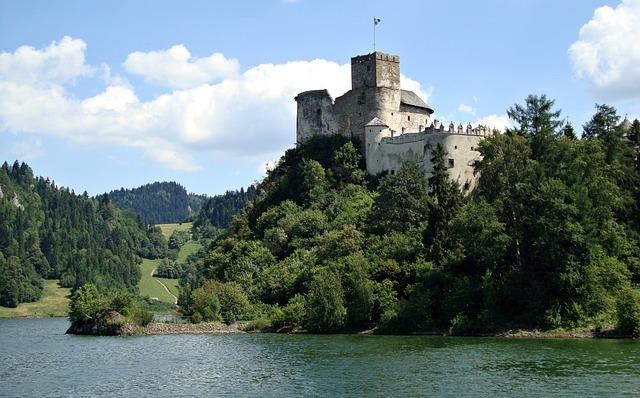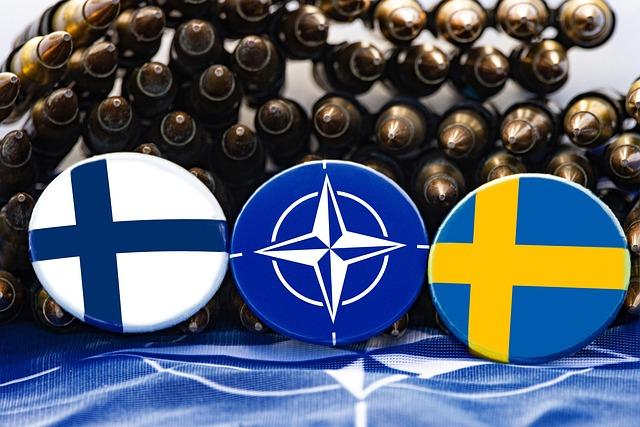In a stark warning that underscores the growing tensions in Eastern Europe, NATO Secretary-general Jens Stoltenberg recently emphasized the alliance’s commitment to defend its members against any potential aggression. Speaking to reporters, Stoltenberg highlighted the severity of the consequences that would follow any attack on Poland or its NATO allies, labeling such an act as a trigger for a “devastating” response. This statement comes amid increasing concerns over security in the region, fueled by escalating military activities and geopolitical dynamics that challenge the stability of NATO’s Eastern flank.As member states navigate these complex challenges, Stoltenberg‚Äôs remarks serve as a crucial reminder of the alliance’s collective defense principles enshrined in Article 5 of the NATO treaty, which maintains that an attack on one is an attack on all. This article delves into the implications of Stoltenberg’s warning and the broader context of NATO’s role in safeguarding peace and security in Europe.
NATOs Assertive Stance on Eastern Security Threats
NATO’s leadership is making it unequivocally clear that any aggression directed at Poland or its allies will not be tolerated. The recent statements from the NATO chief underline the alliance’s commitment to collective defense, a cornerstone of its founding principles. Allies are being urged to enhance their defense capabilities and remain vigilant in the face of escalating tensions in Eastern Europe. This assertive stance is designed to send a strong message to potential aggressors, reaffirming NATO’s readiness to respond decisively to any security threats.
In light of growing concerns regarding regional stability, NATO has outlined several key initiatives to bolster Eastern security, including:
- Increased troop deployments: Reinforcement of presence in Eastern member states to deter any hostile actions.
- Enhanced military training: Ongoing joint exercises to improve coordination among member nations.
- Enhanced intelligence sharing: Strengthening communication and data sharing to better assess threats.
The alliance is coordinating closely with member nations to ensure that all necessary resources are directed to Eastern defense. As geopolitical landscapes evolve, NATO’s strategy remains flexible yet resolute, ensuring that allies stand united against any form of aggression.

Understanding the Implications of an Attack on Poland
The warning from NATO’s chief regarding a potential attack on Poland underscores the critical role that Poland plays within the alliance’s defensive framework. The implications of such an event extend beyond the physical destruction to include meaningful geopolitical shifts. A military confrontation involving Poland would likely activate NATO’s Article 5 commitment, which emphasizes collective defense. This means that an attack on one member could lead to a united response from all NATO allies, thereby risking a broader conflict. The scenarios could range from economic sanctions against the aggressor to extensive military mobilization, altering the security landscape in Europe and perhaps the global balance of power.
Furthermore,the prospects of destabilization in Eastern Europe could cause ripple effects throughout the continent.The response to any attack on Poland could result in:
- Increased military presence: NATO could deploy additional forces to Eastern European countries to deter further aggression.
- Economic repercussions: Sanctions could be imposed on the aggressor nation, impacting global markets.
- Humanitarian crises: Military conflicts frequently enough lead to significant civilian displacement, which could strain resources in neighboring countries.
With many nations closely monitoring the evolving situation, any act of aggression against Poland could trigger a dramatic shift in alliances, underlining the importance of diplomatic measures to prevent conflict escalation.

The Strategic Importance of Poland in NATOs Defense Plan
The geopolitical landscape of Europe has evolved considerably in recent years, positioning Poland as a key player in NATO’s defense strategy. Its location‚Äîbordering several Eastern European nations and serving as a frontline state against potential aggressors‚Äîenhances its role as a vital barrier against external threats. The country’s commitment to defense spending and its participation in NATO exercises underscore its strategic importance. Additionally, Poland’s military modernization efforts and enhanced capabilities contribute to the overall readiness of NATO forces to respond swiftly in the event of an attack.
Moreover,Poland’s collaboration with NATO allies is crucial for ensuring regional stability. The presence of U.S. troops and multinational battlegroups in Poland exemplifies the collective defense principle that reinforces the notion of solidarity among member states.The collaborative efforts extend beyond military might; they include various forms of cooperation, such as intelligence sharing and joint training missions. The establishment of bases and infrastructure in Poland allows for rapid deployment of NATO forces, enhancing deterrence capabilities against potential threats. Key factors highlighting Poland’s strategic significance include:
- Geographical Location: Acts as a buffer between NATO and potential aggressors.
- Defense Budget: Commitment to meeting NATO’s spending guidelines strengthens alliance capabilities.
- Military Alliances: Active participation in various NATO drills enhances operational effectiveness.
- Infrastructure Development: investment in military bases facilitates quick mobilization of forces.
- Political Stability: Supports cohesive defense policy within the alliance.

Preparing for Escalation: NATOs Military Readiness
the recent warning from NATO’s chief underscores the alliance’s unwavering commitment to safeguarding its member states, particularly in Eastern Europe. As tensions simmer, especially regarding Poland’s security, NATO is ramping up its military readiness to deter potential aggression. The alliance’s preparedness involves a extensive strategy that focuses on enhancing troop deployments, increasing military exercises, and boosting logistical efficiency within member countries. Key initiatives include:
- Increased troop presence: NATO is reinforcing its eastern flank with additional battlegroups to ensure rapid response capabilities.
- Enhanced military exercises: Regular large-scale drills are being conducted to fine-tune collective defense strategies and improve interoperability among forces.
- Strengthened intelligence sharing: Enhanced collaboration and communication among member nations are crucial for preemptive measures.
In the face of potential threats, NATO’s commitment extends beyond mere presence.A robust framework is in place to ensure that any aggression towards a member country, particularly Poland, elicits a swift and “devastating” response. This involves a multi-tiered approach that relies on the integration of various military capabilities across the alliance. The following table highlights NATO’s strategic pillars in response preparedness:
| strategic Pillar | Description |
|---|---|
| Rapid Response Forces | Units that can be deployed within days to respond to crises. |
| Collective Defense Commitment | Article 5 guarantees mutual defense among member states. |
| Cyber Defense | protection against cyber threats as part of overall military readiness. |

Diplomatic Channels: Engaging Allies to De-escalate Tensions
The geopolitical landscape of Eastern Europe has become increasingly volatile, prompting a reassessment of strategies among NATO allies. In light of recent provocations, strong diplomatic measures are crucial to mitigate tensions and prevent escalation into conflict. Engaging in dialog through diplomatic channels serves as a vital tool for building consensus among member nations and fostering a unified stance against potential aggressors. Initiatives may include:
- High-Level Diplomacy: Meetings between heads of state to discuss concerns and reinforce commitments to collective defense.
- Multilateral Engagements: Leveraging international forums to rally support from non-NATO partners and bolster global condemnation of hostile actions.
- Informal Dialogues: Open lines of communication with neighboring countries to exchange views and reduce misunderstandings.
Moreover, it is indeed essential for NATO to establish a coordinated response framework that prioritizes intelligence sharing and operational readiness. This proactive approach will enable allies to articulate a coherent message to any hostile entity: aggression against one is aggression against all. To illustrate the importance of solidarity, consider the following framework:
| Action | objective | Expected Outcome |
|---|---|---|
| Emergency Summits | Assess threats and devise collective strategies | Quick, unified response to aggression |
| joint Military Exercises | Enhance readiness and interoperability | Demonstrated commitment to deterrence |
| crisis Communication | Maintain openness among allies | Avoid escalation through clear messaging |

Recommendations for Strengthening European Security Measures
to enhance the security landscape across Europe, it is crucial to adopt a multifaceted approach that focuses on both military preparedness and diplomatic engagement. Firstly, establishing robust military alliances through increased joint exercises and sharing intelligence between member states can fortify defenses. This includes:
- Enhanced troops deployment in Eastern Europe
- Investment in cutting-edge defense technology
- Strengthening cyber defense measures to protect critical infrastructure
Equally important is the need for proactive diplomatic channels aimed at de-escalating tensions and preventing conflicts before they arise. Initiatives can be organized to promote dialogue between NATO member states and any potential adversaries, with emphasis on the following strategies:
- Regular diplomatic summits to address security concerns
- Increased economic partnerships to foster interdependence
- Public awareness campaigns to promote unity and resilience among citizens
implementing these recommendations can help build a stronger, more unified response system that not only deters aggression but also reinforces the commitment to peace and stability in the region.

In Conclusion
the stark warning from NATO’s chief underscores the alliance’s unwavering commitment to collective defense in the face of potential threats in Eastern Europe. With escalating tensions and the volatile geopolitical landscape, the implications of any aggression against Poland or its allies could lead to severe consequences, not only for the aggressors but also for regional stability. As the international community closely monitors these developments, the emphasis on solidarity among NATO member states remains paramount, highlighting the alliance’s role as a critical deterrent. As we move forward,the world watches with bated breath,aware that the balance of peace hangs precariously on the decisions made in the coming weeks.
















